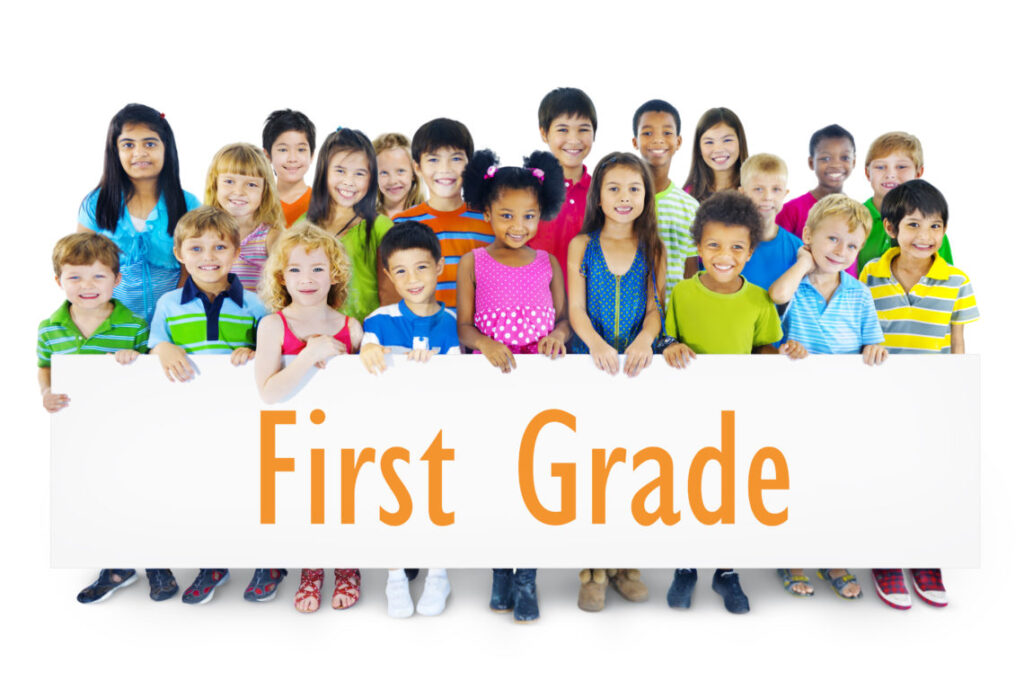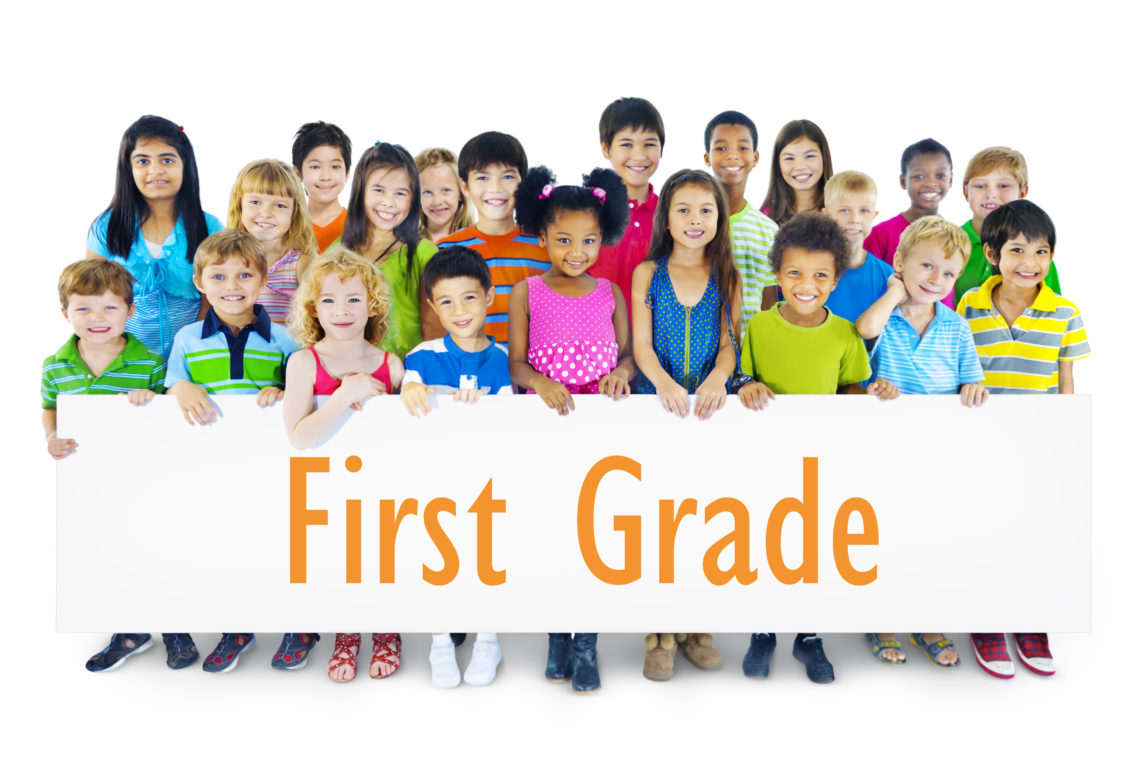
What Age Is a 1st Grader? Understanding the Age Range and Developmental Milestones
Understanding the typical age of a child entering first grade is crucial for parents, educators, and anyone involved in a child’s development. Generally, children start 1st grade around the age of 6, but this can vary depending on several factors. This article will delve into the typical age range for first graders, the factors influencing when a child starts first grade, the key developmental milestones expected at this age, and how to support a child’s transition into and through 1st grade. Knowing “what age is a 1st grader” helps set realistic expectations and provides the appropriate support for their educational journey.
Typical Age Range for 1st Graders
The most common age for children entering 1st grade is 6 years old. However, the specific age range typically falls between 6 and 7 years old. This range is influenced by school district policies regarding kindergarten entry age and individual birthdates. For instance, a child born in late summer or early fall might be closer to 7 years old when they begin 1st grade, while a child born in early spring could be just over 6. Understanding this age range is the first step in knowing “what age is a 1st grader“.
Factors Influencing the Age of a 1st Grader
Several factors can influence when a child starts 1st grade:
- School District Policies: Each school district has its own cut-off date for kindergarten entry, which indirectly affects when a child enters 1st grade. These cut-off dates vary widely across different states and even within the same state.
- Birthdate: A child’s birthdate is a primary determinant. As mentioned earlier, children born close to the cut-off date may be older or younger than the average 1st grader.
- Kindergarten Enrollment: Some parents choose to delay their child’s entry into kindergarten, which subsequently delays their entry into 1st grade. This decision is often based on the child’s developmental readiness.
- Redshirting: Redshirting refers to the practice of delaying a child’s entry into kindergarten by a year. Parents might do this if they believe their child is not socially, emotionally, or academically ready. Redshirting can result in a child being 7 years old when they start 1st grade.
Developmental Milestones for 6- and 7-Year-Olds
Understanding the developmental milestones expected of children around the age of 6 and 7 is essential for assessing their readiness for 1st grade. These milestones encompass various domains, including cognitive, social-emotional, and physical development. These milestones are important to understand when considering “what age is a 1st grader” and what to expect.
Cognitive Development
At this age, children typically demonstrate significant cognitive advancements:
- Reading Skills: They begin to develop basic reading skills, such as recognizing sight words and sounding out simple words.
- Writing Skills: Their writing skills improve, and they can write simple sentences with correct capitalization and punctuation.
- Mathematical Concepts: They grasp basic mathematical concepts, including addition, subtraction, and understanding numbers up to 100.
- Problem-Solving: They can solve simple problems and understand cause-and-effect relationships.
Social-Emotional Development
Social-emotional development is equally important during this stage:
- Social Interaction: Children become more adept at interacting with their peers, sharing, and taking turns.
- Emotional Regulation: They improve their ability to manage their emotions, although occasional emotional outbursts are still normal.
- Empathy: They develop a greater sense of empathy and understanding for others’ feelings.
- Following Rules: They can understand and follow classroom rules and routines.
Physical Development
Physical development continues to progress:
- Fine Motor Skills: Fine motor skills improve, allowing them to write more neatly, cut with scissors, and manipulate small objects.
- Gross Motor Skills: Gross motor skills become more refined, enabling them to run, jump, and participate in physical activities with greater coordination.
- Hand-Eye Coordination: Hand-eye coordination improves, which is essential for activities like catching a ball and writing.
Supporting a Child’s Transition to 1st Grade
Transitioning to 1st grade can be a significant milestone for children. Parents and educators can play a crucial role in supporting this transition and ensuring a smooth and positive experience. It’s important to remember that knowing “what age is a 1st grader” is only part of the equation; understanding their individual needs is just as critical.
Preparing for 1st Grade
Here are some ways to prepare a child for 1st grade:
- Reading Aloud: Reading aloud to children helps develop their language skills and fosters a love of reading.
- Practicing Writing: Encourage them to practice writing their name and simple sentences.
- Math Games: Play math games to reinforce basic mathematical concepts.
- Social Skills: Provide opportunities for them to interact with peers and practice social skills.
- Visiting the School: If possible, visit the school and classroom before the first day to familiarize them with the environment.
Supporting Learning at Home
Parents can continue to support their child’s learning at home by:
- Creating a Study Space: Designate a quiet and comfortable space for them to do their homework.
- Establishing a Routine: Establish a consistent homework routine to help them stay organized and focused.
- Providing Assistance: Offer assistance with homework when needed, but encourage them to try to solve problems independently.
- Communicating with Teachers: Maintain open communication with their teacher to stay informed about their progress and any areas of concern.
Addressing Challenges
Some children may face challenges during the transition to 1st grade. Here’s how to address these challenges:
- Academic Struggles: If a child is struggling academically, work with their teacher to identify the areas of difficulty and develop a plan to address them.
- Social Difficulties: If they are having trouble making friends or interacting with peers, encourage them to participate in social activities and provide support and guidance.
- Emotional Issues: If they are experiencing anxiety or other emotional issues, seek professional help from a therapist or counselor.
The Importance of Individual Readiness
While understanding the typical age range for 1st graders is helpful, it’s important to remember that children develop at their own pace. Individual readiness is a critical factor in determining when a child should start 1st grade. Some children may be ready for 1st grade at 6 years old, while others may benefit from waiting until they are 7. The key is to assess their overall development and make a decision that is in their best interest. Knowing “what age is a 1st grader” is less important than ensuring they are ready for the academic and social demands of 1st grade.
Assessing Readiness
Parents and educators can assess a child’s readiness for 1st grade by considering the following factors:
- Academic Skills: Do they have basic reading, writing, and math skills?
- Social-Emotional Skills: Can they interact with peers, follow rules, and manage their emotions?
- Attention Span: Can they focus on tasks for a reasonable amount of time?
- Self-Help Skills: Can they dress themselves, use the restroom independently, and manage their belongings?
Conclusion
In summary, the typical age for a child entering 1st grade is 6 years old, with the age range generally falling between 6 and 7. However, it’s essential to consider various factors, including school district policies, birthdates, and individual readiness, when determining when a child should start 1st grade. Understanding the developmental milestones expected at this age and providing appropriate support can help ensure a smooth and successful transition to 1st grade. Ultimately, the goal is to make a decision that is in the best interest of the child, taking into account their unique needs and abilities. Remembering “what age is a 1st grader” is a general guideline, but individual readiness should always be the priority. By considering these factors, parents and educators can work together to support children as they embark on their 1st grade journey. It is important to understand “what age is a 1st grader” to set reasonable expectations and provide adequate support. Considering “what age is a 1st grader” also helps in understanding the developmental milestones expected at this stage. Parents often wonder “what age is a 1st grader” when preparing their child for school. Knowing “what age is a 1st grader” allows for proper preparation and support. The question of “what age is a 1st grader” is frequently asked by parents and educators. It’s crucial to know “what age is a 1st grader” to ensure children are developmentally ready. Many parents are curious about “what age is a 1st grader” and the implications for their child’s education. It’s also important to consider “what age is a 1st grader” in the context of individual readiness. Thinking about “what age is a 1st grader” can help parents prepare their children for the academic environment. Considering “what age is a 1st grader” is a common concern for parents as their children approach school age. [See also: Preparing Your Child for First Grade] [See also: Developmental Milestones for 6 Year Olds] [See also: Redshirting: Is It Right for Your Child?] [See also: Understanding Kindergarten Readiness] [See also: Tips for a Successful School Year]

